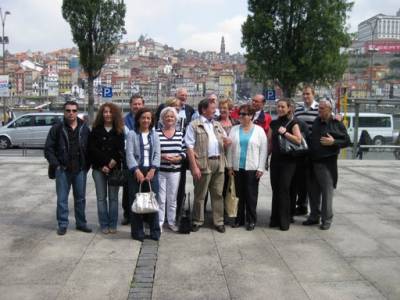Ship Supply in the North Sea
Why modern European Shipping cannot work without it
With over 100 ports along the North Sea coastline, vessels calling any one of these ports can access a wide range of services for international shipping business, including ship supply services. From supplying foods to technical spare parts and anything in between, vessels calling the ports in the North Sea cannot do without a ship chandler. In this article, we explore why ship supply remains essential for the maritime industry in Northern Europe.
One of the busiest seas in the world
The North Sea is one of the busiest seas in the world, with important ports such as Dunkirk, Antwerp (about 15,000 ships per year), Ghent, Zeebrugge (about 8,000 ships), Vlissingen, Terneuzen, Rotterdam (about 40,000 ships), Amsterdam (about 8,000 ships), and Den Helder. More than 300,000 ships pass through the Calais Canal each year, with only one channel truly accessible to the great sea giants, and during the voyage in the North Sea, careful attention must be paid to passing ferries, fishing vessels, oil and gas platforms, and windmills.
As the North Sea is shallow, ports are generally large to cater to an incoming fleet of vessels. Port cities with ship chandleries are many such as Hamburg and Antwerp, but they also include Rotterdam, Felixstowe, Emden, Aberdeen and so on. Some ports specialize in providing services in bulk shipping, especially in the oil industry such as Rotterdam which offers more than 100 different shipping services and technical support port facilities like welding, blasting and repair, and others in the industry offer a dry bulk cargo port handling industrial machinery.
The number of ships in the North Sea has decreased slightly since 1987. More goods are being shipped at sea in larger ships. The number of ships is also not expected to increase in the future. However, larger ships will replace smaller ships in the North Sea.
Ship supply in North Sea Ports – a well-oiled machine.
Around these ports, ship supply is well-organized and tight. Ship suppliers have everything that is needed on a ship, whether it's going to the ocean or just across the country. Because of the huge number of products European ship suppliers sell every day, time is always of the essence. What our customers require must not only be in stock, but it must also be delivered at the agreed-upon time, in the right place, with any help required and the right paperwork. So, timing, precision, and speed are all very important in this process of ship supply.
That is also why functional agreements have been made with customs offices, especially by the Belgian and Dutch Associations of Ship Suppliers (and their cooperation) to save time.
A special status
Ship chandlers who can satisfy several requirements can qualify for exemptions. If they are granted exemptions, the only thing they are required to do is report the number of goods that will be delivered on board and possibly make an additional statement regarding excise goods. After that, they are free to make deliveries. After that, a decision regarding whether or not to inspect the goods on board is made based on – what I feel – is a random draw.
Different EU Member States – different rules for ship supply: Why?
But even in the EU Member States around the North Sea, not all are equal. In Belgium, the driver takes the customs declarations to the customs office after delivering the goods. The customs office then clears the declarations. The Netherlands has come up with a special IT program called "Provisions." The same way as in Belgium is used to tell the program about the delivery, but a special customs program is used to enter the MRN numbers of the customs declarations. Whether customs have finished their checks or not, all declarations are cleared in a split second within two days, whether customs have finished their checks or not. Still, I can't believe this program isn't being used in the other Member States. Why not?
Takeaway
The main reason why ship suppliers in the North Sea have to be so precise in the timing of deliveries is that they do not want their ships to be delayed. This costs money, both on the side of the shipper and the side of the logistics provider. It is therefore important to have a smooth transaction, which can save everyone time and money. Contacts with customs ensure that this process is as efficient as possible.




